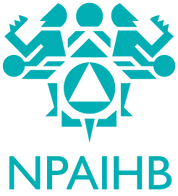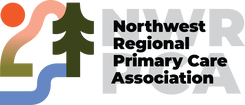|
Due to centuries of systemic inequities, American Indian/Alaska Native (AI/AN) populations disproportionally experience health disparities and a lack of access to high quality, culturally responsive healthcare. Relatedly, AI/AN people are also vastly underrepresented in healthcare careers. These challenges highlight a need for a tribally-driven, culturally tailored healthcare system that centers AI/AN healthcare providers. The Tribal Community Health Provider Program (TCHPP) is addressing these needs by developing and implementing accessible, step-wise workforce education programs designed specifically for providing healthcare in Tribal communities. The TCHPP is housed within the Northwest Portland Area Indian Health Board (NPAIHB) – a nonprofit Tribal advisory organization serving the forty-three federally recognized tribes of Oregon, Washington, and Idaho with the mission of promoting AI/AN leadership in healthcare for AI/AN communities. TCHPP partners with tribes and institutions of higher education to achieve its goals.
TCHPP programming is modeled after the highly successful Community Health Aide Program (CHAP), which first began in Alaska’s Tribal communities over 60 years ago and has since proven to be a sustainable, effective, and culturally acceptable method for delivering healthcare in Tribal communities. An innovative and customizable program with clear and consistent success, CHAP was authorized to expand nationwide as part of the permanent reauthorization of the Indian Healthcare Improvement Act in 2010.The Indian Health Service later released information detailing the process for this expansion in 2020. Tribes in the northwest have been leaders in the work to expand CHAP outside of Alaska. TCHPP includes three healthcare provider career pathway options: Behavioral Health Aides/Practitioners (BHA/P), Dental Health Aides/Therapists (DHA/T), and Community Health Aides/Practitioners (CHA/P). Each pathway includes multiple career steps. Healthcare providers working under this program earn a federal certification from a CHAP Certification Board, and all providers work clinically under the supervision of licensed/certified healthcare providers. The Behavioral Health Aide Program (BHAP) grew out of Alaska’s statewide “counselor-in-every-village" initiative to provide behavioral health prevention, treatment, and recovery services in rural Alaska. Behavioral Health Aides (BHAs) are counselors, health educators, and advocates that address behavioral health needs such as alcohol, drug, and tobacco abuse, as well as mental health problems such as grief, depression, and suicide. The Dental Health Aide Program develops and implements education programs for four types of Dental Health Aides (DHAs): Primary Dental Health Aides (PDHAs), Expanded Function Dental Health Aides (EFDHAs), Dental Health Aide Hygienists (DHAHs), and Dental Health Aide Therapists (DHATs, also called Dental Therapists). DHAs provide the most commonly needed preventive and routine care, including such services as sealants, cleanings, fillings, and tooth extractions (depending on the type of DHA). The Community Health Aide Program (CHAP) provides tribally-focused wrap around care to communities. Community Health Aides and Practitioners are certified primary and emergency care clinicians. Their scope of practice includes physical exams, medication management, family planning, as well as other primary care activities. TCHPP also offers a Community Health Representative (CHR) program, which serves both as its own career opportunity and as an initial, accessible step toward any of the above listed Programs (BHA, DHA, CHA). CHRs work alongside the dental, behavioral, and community health practitioners to create integrated support for a robust and thriving healthcare delivery system. They perform tasks such as checking vital signs, helping with medical forms, transporting patients, and providing education materials. TCHPP promotes tribal self-governance and tribal sovereignty by removing barriers, fostering education pathways, and promoting leadership for AI/AN people. The program addresses social and structural determinants of health by working with tribes, tribal health programs, and tribal leaders to increase access and improve health outcomes. TCHPP focuses on facilitating programs that allow our communities to thrive in the way our ancestors intended. If you would like to learn more about the programs outlined above please contact: DHAP: Miranda Davis, DHA Program Director – [email protected] BHAP: Dolores Jimerson, Behavioral Health Clinical Supervisor – [email protected] CHAP: Carrie Sampson Samuels, CHA Program Director – [email protected] CHR: Stephannie Christian, TCHP Education Program Director – [email protected] Comments are closed.
|
Archives
June 2024
Categories |
|
|
© Northwest Regional Primary Care Association. All Rights Reserved.
This project is supported by the Health Resources and Services Administration (HRSA) of the U.S. Department of Health and Human Services (HHS) as part of an award totaling $1,742,242.00 with 25% financed with nongovernmental sources. The contents are those of the author(s) and do not necessarily represent the official views of, nor an endorsement, by HRSA, HHS or the U.S. Government.


 RSS Feed
RSS Feed
